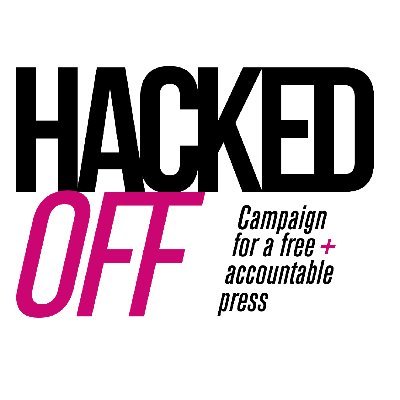HUGH GRANT MOCKS IPSO & PRAISES “ENORMOUS SUCCESS” OF LEVESON SYSTEM AT HACKED OFF’S ANNUAL LEVESON LECTURE

Actor & Hacked Off Board Director Hugh Grant praised the “enormous success” of IMPRESS, the only independent & largest press regulator in the UK
Grant mocked the press’ alternative complaints-handler, IPSO, as the “sad remake of the PCC” (the predecessor to IPSO, which was closed in 2014)
Lecturer Chris Bryant accused publishers of “monetising hatred” in their coverage of Meghan Markle, and called for:
Higher standards in the media
Tighter ownership rules
Transparency on recommender algorithms on social media
Hacked Off CEO Nathan Sparkes accused the Government of risking national security for the interests of the press, in Online Safety Bill’s news publisher exemption
Hacked Off’s 9th annual Leveson Lecture took place at Westminster University on Tuesday December 6th. It was delivered by Labour MP & author Chris Bryant.
Hugh Grant gave opening remarks where he praised reporting from independently regulated publications, saying:
“They said an independently regulated press will have a chilling effect on journalism that is critical of the government. [This] has turned out not to be true. When I look at publications that are members of Impress…it’s hard to call them chilled about this government. Conversely if you look at members of IPSO like The Daily Mail it’s almost as if it’s written by Nadine Dorries”
He continued,
“Another thing that was levelled at independent regulation is that it would somehow destroy investigative journalism but again if you really look at the publications in Impress, again and again they scooped the mainstream press…there was an amazing moment in 2018 when [impress member] Bellingcat was able to reveal the name of one of the suspects in the Salisbury poisoning and on the same day the Mail Online, their great piece of investigative journalism was that Meghan Markle now liked to shut the car door herself. That’s the difference in cultures we have between [members of] the two regulators.”
In his lecture, Chris Bryant MP called for:
“Higher journalistic standards across news sites and traditional press to counteract the inherent tendency in algorithms towards untruth and the marketing of hatred.
Greater transparency about how recommender algorithms work and more online opportunities for consumers to opt for news and stories from outside their echo chamber.
Tighter rules on anonymised fake online accounts run by bots
More research by Ofcom and others into the pernicious or deleterious effects of algorithms
Tighter regulation of broadcasters deliberately disseminating conspiracy theories – and the online platforms that further amplify them
New media ownership rules that are fit for the digital era and enable regulators to decide whether a broadcaster or news service company is owned or run by a fit or proper person who is registered for tax purposes in the UK.”
In the panel discussion which followed, Hacked Off CEO Nathan Sparkes was critical of the news publisher exemption in the Online Safety Bill. This is a powerful exemption put into the bill for the benefit of national newspapers, to shield their content from regulation on social media.
Sparkes said,
“What [the bill] says for newspapers [who want to access the exemption] is you don’t have to be regulated at all. You’ve got to have staff, you’ve got to have an office, you’ve got to have a complaints process and a standards code. That code could say this newspaper is inaccurate all the time and the complaints process could say, write down your complaint and post it to Lapland. All of that qualifies.”
“There are openly fascist blogs and Holocaust denial sites – all kinds of horrific content – and these dangerous publishers are going to be able to access this exemption, in the way the government has drafted it.”
“A competent and un-corrupt government would say if you want the exemption you have to be regulated. [But instead] they’ve put the interests of the public – and we’re talking about issues here that are touching on national security and we’re talking about hostile state sponsored disinformation… – the government has said all of those issues don’t matter because national newspapers don’t want to be regulated.
Guardian journalist Haroon Siddique spoke about how reporters at some publications were reticent to sign a letter he co-organised to the Society of Editors, which called out racism in the newspaper industry:
“For someone like me it was easy to stand up because I worked for The Guardian and I think everyone there felt the same way. But when you are looking at other organisations, I had people who I know were initially from the BBC who put their names on [the letter, criticising the Society of Editors] and were told to take them off. At the Independent, which might surprise you as it’s meant to be a liberal perspective. And there are people at the Mail who said please keep me updated but didn’t sign themselves.”




